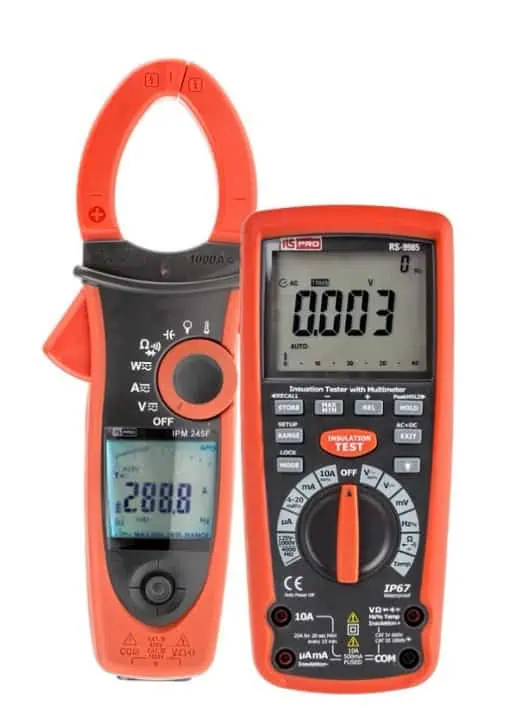Electrical insulation testers are crucial tools used to assess the integrity and safety of electrical systems by measuring the resistance of insulation materials. As technology advances, these testers have evolved to offer more sophisticated features that enhance accuracy, efficiency, and usability.
This article explores the advanced features to consider when choosing a modern electrical insulation tester.
1. Voltage Range and Accuracy
Modern insulation testers come with a wide range of voltage settings to accommodate different types of electrical systems. They offer high accuracy in voltage measurements, ensuring precise readings even in complex environments.
Look for testers with selectable test voltages ranging from low to high voltages, such as 50V, 100V, 250V, 500V, and 1000V, to suit various insulation resistance testing requirements.
2. Insulation Resistance Measurement
The primary function of an insulation tester is to measure insulation resistance. Advanced models provide accurate measurement capabilities across a broad range of values, from megaohms to teraohms (1 MΩ to 1000 GΩ or more).
They offer real-time resistance display and can detect insulation faults quickly, helping to prevent electrical failures and ensuring compliance with safety standards.
3. Advanced Data Logging and Storage
Modern testers often feature advanced data logging capabilities that allow users to store and analyze measurement data efficiently. They can store thousands of test results internally or externally via USB or Bluetooth connectivity.
This feature is particularly useful for documenting test procedures, tracking trends in insulation resistance over time, and generating comprehensive reports for compliance audits.
For instance, an electrical insulation tester megger can provide highly accurate resistance measurements and store vast amounts of data for thorough analysis.
4. Guard Terminal
Some high-end insulation testers include a guard terminal feature. This feature helps minimize surface leakage currents during high-resistance measurements by effectively isolating the test leads from the tester’s housing. It ensures more accurate readings, especially when testing insulation in sensitive or high-voltage applications.
5. PI (Polarization Index) and DAR (Dielectric Absorption Ratio) Testing
PI and DAR testing are specialized functions found in advanced insulation testers. These tests assess the quality and integrity of insulation materials over time. PI testing measures the rate of absorption of insulation material, while DAR testing compares the insulation resistance at different voltage levels.
These tests are crucial for predictive maintenance and assessing the aging of insulation materials.
6. Variable Test Voltage
Variable test voltage capability allows testers to adjust the applied voltage during testing, offering flexibility depending on the type and condition of the insulation being tested. This feature is essential for conducting specialized tests and ensuring accurate results across a wide range of insulation materials and system voltages.
7. Auto Discharge
Safety is paramount when working with electrical systems. Modern insulation testers often include an auto-discharge function that automatically discharges the residual voltage in the system after completing a test. This feature helps prevent accidental shocks to the operator and ensures safe handling of the equipment during and after testing.
8. Temperature Compensation
Temperature can significantly affect insulation resistance measurements. Advanced testers incorporate temperature compensation features that adjust the readings based on the ambient temperature at the time of testing. This ensures that measurements remain accurate and consistent, even in environments with varying temperatures.
9. User-Friendly Interface and Software Integration
Ease of use is critical, especially for technicians who perform insulation resistance testing regularly. Modern testers are designed with intuitive user interfaces, touchscreen displays, and ergonomic controls for enhanced usability.
They may also offer software integration capabilities, allowing seamless data transfer, remote monitoring, and customization of test parameters via PC or mobile devices.
10. Robust Construction and Durability
Durability is essential for equipment used in demanding industrial and field environments. Look for insulation testers constructed from robust materials that can withstand shocks, vibrations, and adverse weather conditions. IP ratings indicate the degree of protection against dust and water ingress, ensuring reliable performance in diverse working conditions.
Conclusion
Choosing the right electrical insulation tester involves considering a range of advanced features that enhance functionality, accuracy, and safety.
Whether you are performing routine maintenance checks, commissioning new installations, or troubleshooting electrical faults, selecting a modern insulation tester equipped with these advanced features will help ensure efficient operations and compliance with industry standards.
By understanding and leveraging these capabilities, technicians can effectively assess the condition of electrical insulation systems, mitigate risks, and maintain optimal performance across various applications.

